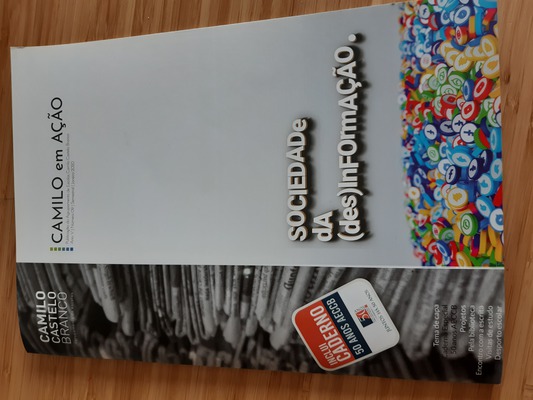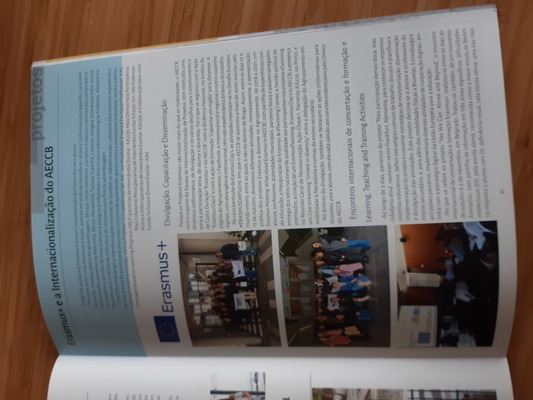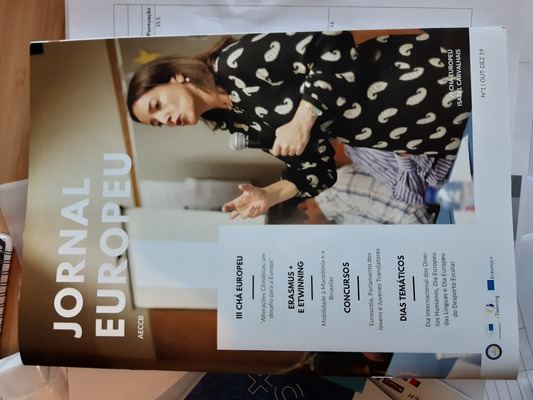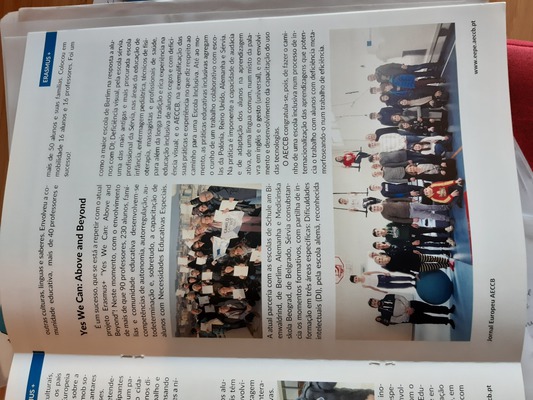AECCB, half-yearly magazine CAMILO EM AÇÃO.
Theme: the (un) information society
Ano V - Number 09 - january 2020


Regarding the “Yes We Can: Above and Beyond” project, the international Erasmus + concert and training meeting took place between 30 October and 2 November in Belgrade. It was also a formative moment, with information sharing in three specific areas: Intellectual difficulties (ID), by the German school, recognized as the largest school in Berlin in responding to students with ID; Visual impairment, by the Serbian school, one of the oldest and most sought after professional school in Serbia, in the areas of childhood education, pediatric nursing, physiotherapy technicians, massage therapists and health professionals, in addition to the long tradition and rich experience in inclusive education blind and visually impaired students; and the AECCB, in exemplifying its practices and experience with regard to the path to an Inclusive School.
European journal AECCB
nº1, october-december 2019


Yes We Can: Above and Beyond
It is a success, which is being repeated with the current Erasmus + project “Yes We Can: Above and Beyond”! At this moment, with the involvement of more than 90 teachers, 230 students, families and the educational community, skills of autonomy, self-regulation, self-determination and, above all, the training of students with Special Educational Needs are being developed. The current partnership with the schools of Schule am Bienwaldrind, of Berlin, Germany and Medicinska skola Beograd, of Belgrade, Serbia embodies the training moments, with information sharing in three specific areas: Intellectual difficulties (DI), by the German school, recognized as Berlin's largest school in responding to students with ID; Visual impairment, by the Serbian school, one of the oldest and most sought after professional school in Serbia, in the areas of childhood education, pediatric nursing, physiotherapy technicians, massage therapists and health professionals, in addition to the long tradition and rich experience in inclusive education blind and visually impaired students; and the AECCB, in exemplifying its practices and experience with regard to the path to an Inclusive School. So far, inclusive educational practices have added the character of collaborative work with schools in Poland, the United Kingdom, Germany and Serbia. In practice, the ability of audacity and adaptation of students in imposing active learning, of a common language, in a mixture of the English word and gesture (universal), and in the involvement and development of the training in the use of technologies is imposing. The AECCB is therefore pleased to make the path to an inclusive school in a process of internationalization of learning that enhances the work with students with disabilities metamorphosing it into a work of efficiency.